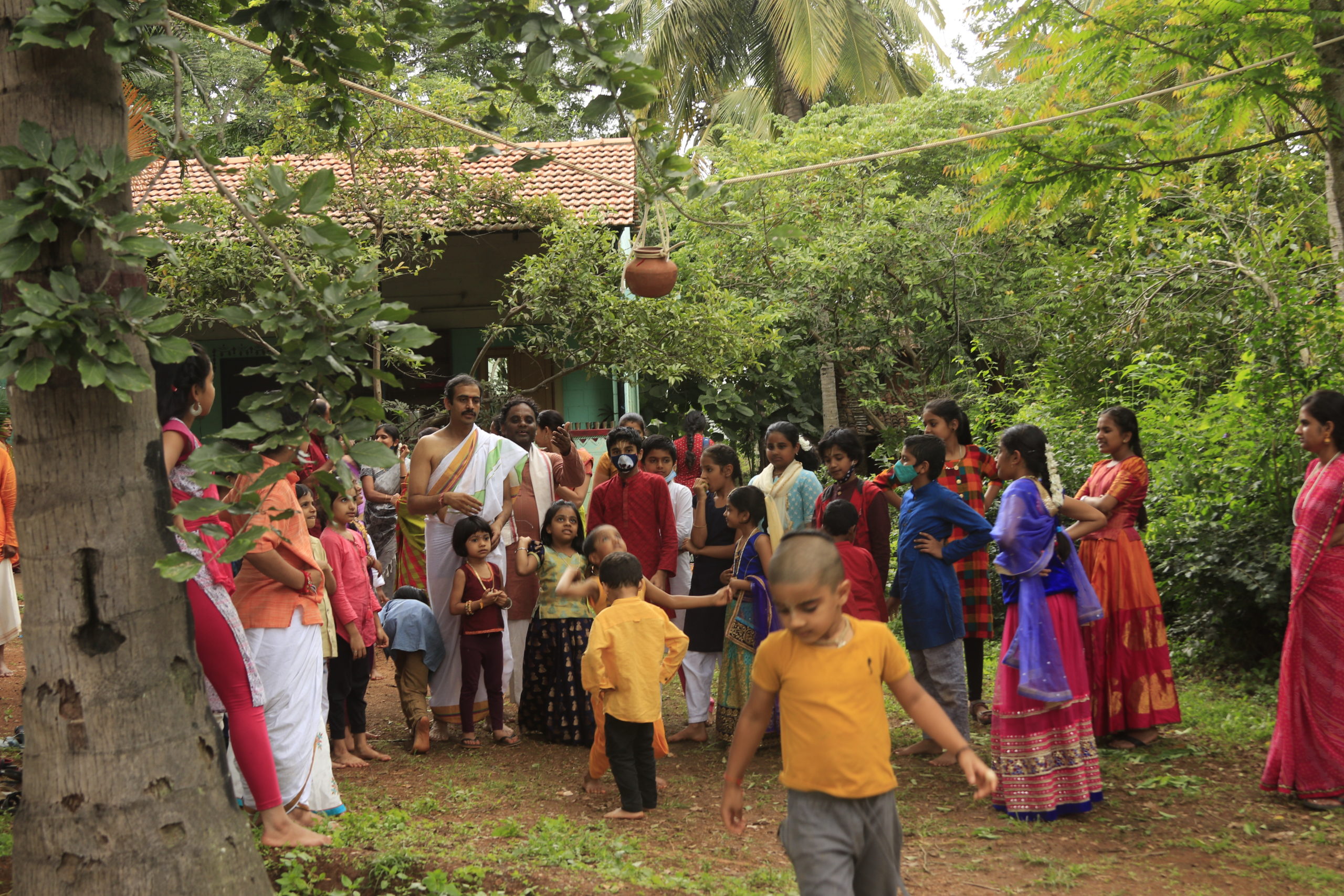An alone person can only buy and be a consumer, whereas a group of people can make. Today every individual is seen as a consumer and every situation an opportunity to earn. This capitalism has led our great minds and corporations to knowingly and unknowingly move in the direction of creating a need to buy or sell where there is none. The pressures of the stock market and competitions from other companies makes putting breaks almost impossible to this crazy never ending materialism. When the whole society is led by such a philosophy of capitalism, the governance, the advertisements, movies, media and education all feed into this engine. Such governance, education and media leads to fragmenting the families to the smallest individual level. A very fundamental principle of Bharatiyata at the core of which is sustainable living, is that “family is the smallest unit”. A family can build, it can create and not just endlessly buy. Thus materialism and sustainability are poles apart.
At VidyaKshetra we are consciously working towards building a co-located community (Vidyagram), a vision, which we plan to achieve by the year 2030.
In order for us to achieve this vision of Vidyagram, we have put in place many soft community aspects to build our understanding, ability and spirit in that direction. The elements of VidyaKshetra community are as follows-
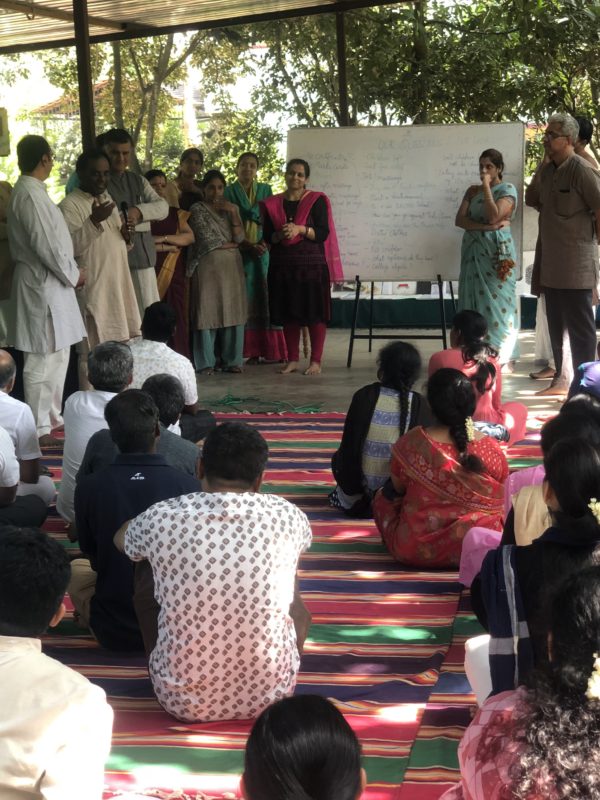
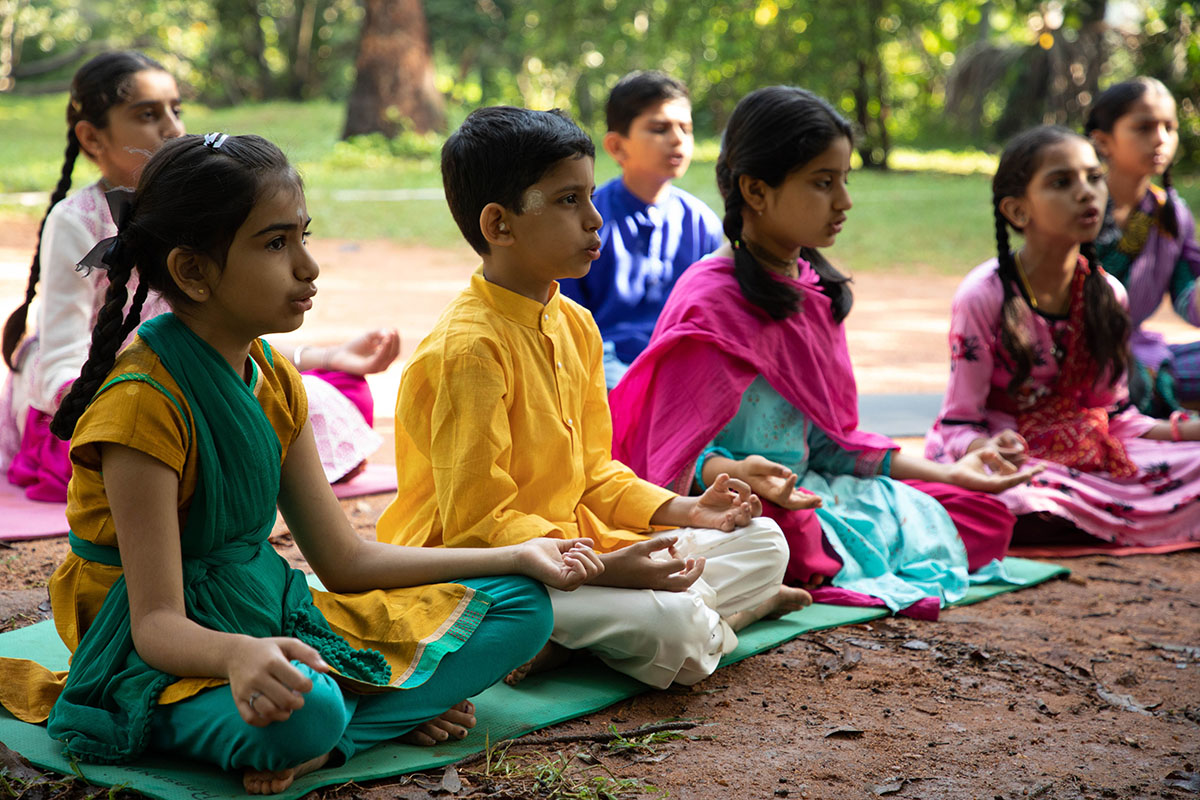
Our approach to our life is a sum total of impressions and learning we have gathered until that point. At VidyaKshetra, we want our children to grow through rich life experiences, identify their vritti and build expertise to excel in their life. These details are shared in section “Vritti (professions) focused education. These students who have identified their Vritti, built expertise in those areas, then can potentially become a teacher or seed a community enterprise (Purushartha) or create an “Acharya Kulam” (learning center related to that area) at Vidyagram.
To run any initiative we need artha. Very important is to differentiate between what can be sold and what cannot be. Since education should never be sold, VidyaKshetra doesn’t charge fees and runs completely on daan and dakshina received from parents, friends and well wishers. Also some parents and teachers of VidyaKshetra have started an enterprise named “Purushartha”, which makes and shares chemical free soaps, organic sweets, organic snacks, pickles, direct farmer to house – chemical free groceries, eco-friendly clothes, panch-gavya products like dhoop, dant manjan, cooking oil etc.
While generating some much needed funds is one aspect of this community enterprise, it also acts as a learning platform for our senior students, who are closely teamed up with these teachers and parents, to learn how to manage and run (plan, procure, execute, packaging, book-keeping, distribute) these enterprises.
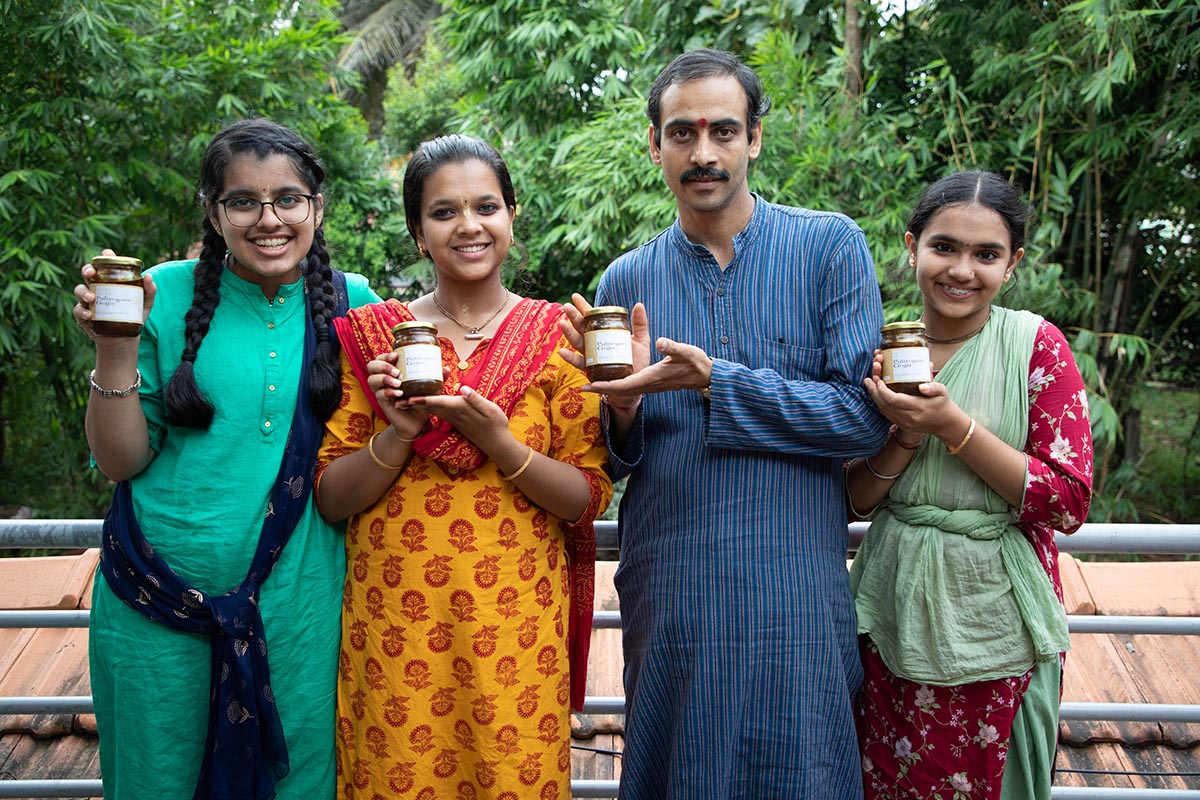
When they are adults, some of our students may join and maybe even manage these enterprises which will enable them with a good earning source and at the same time provide ample time and opportunity to pursue their Vritti.
Last but not the least, having these community enterprises also promotes healthy habits among parents, friends and well wishers of VidyaKshetra who are using these products given by Vidyakshatre community enterprise.
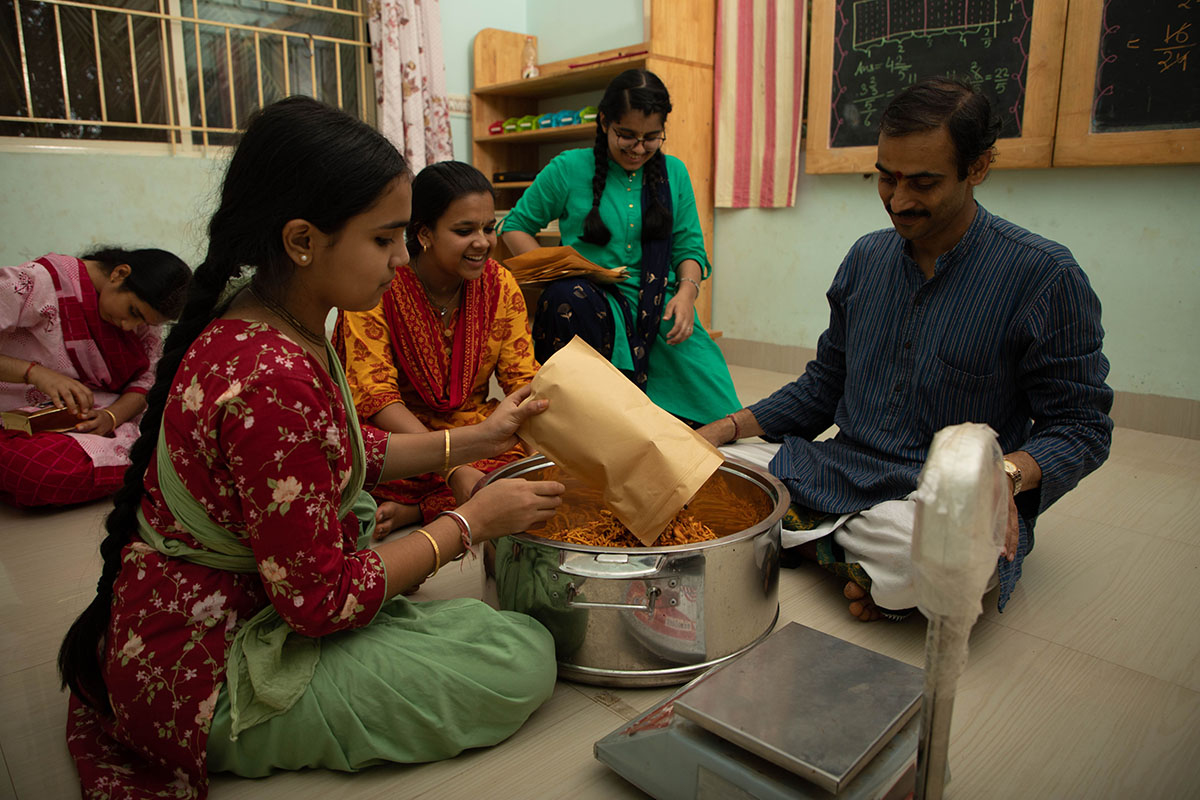
Family is the smallest unit and is the core to sustainable living. Owing to this fundamental principle of Bharatiyata, there have been very conscious efforts to engage parents and teachers in a community setup. This will also allow some of the parents/teachers to have an option to become a part of the Vidyagram in the future. Some of these avenues are:
Parents and teachers work as a group to ensure that responsibilities are taken for pickup and dropping of students to the school through car pooling. Smooth operations require interaction, coordination and synchronization.
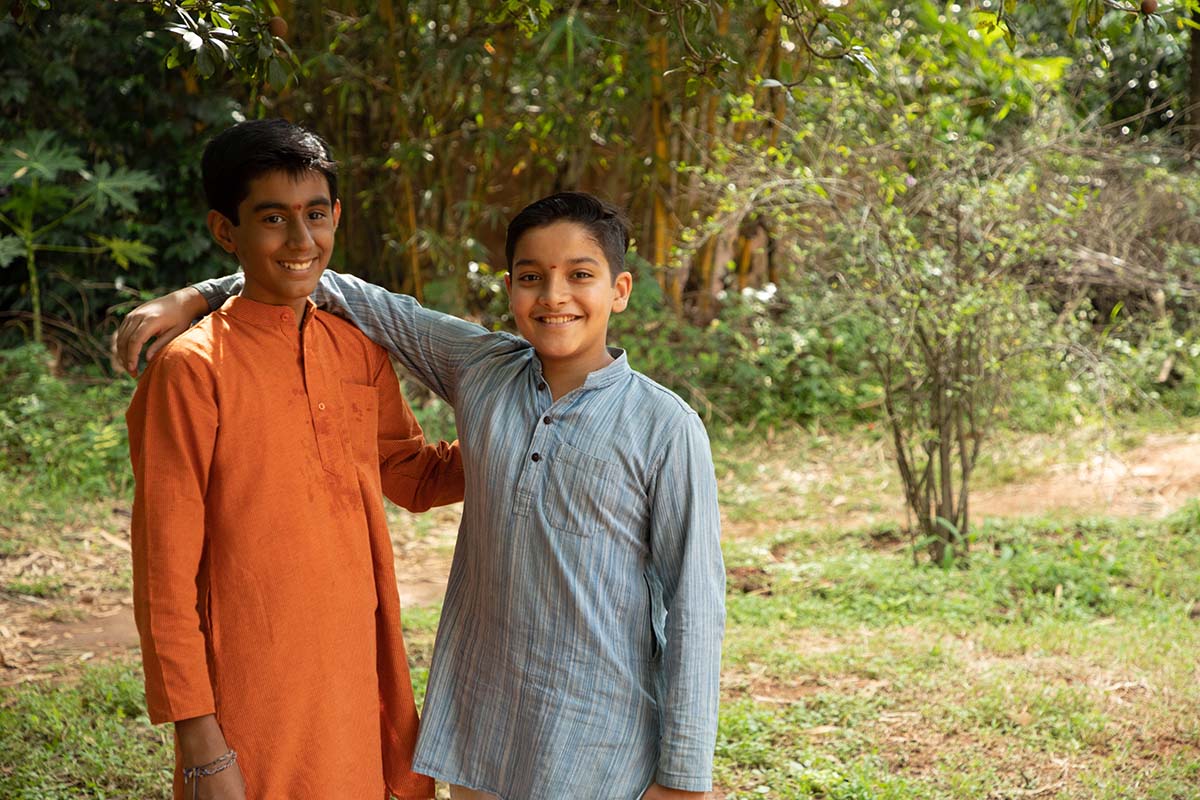
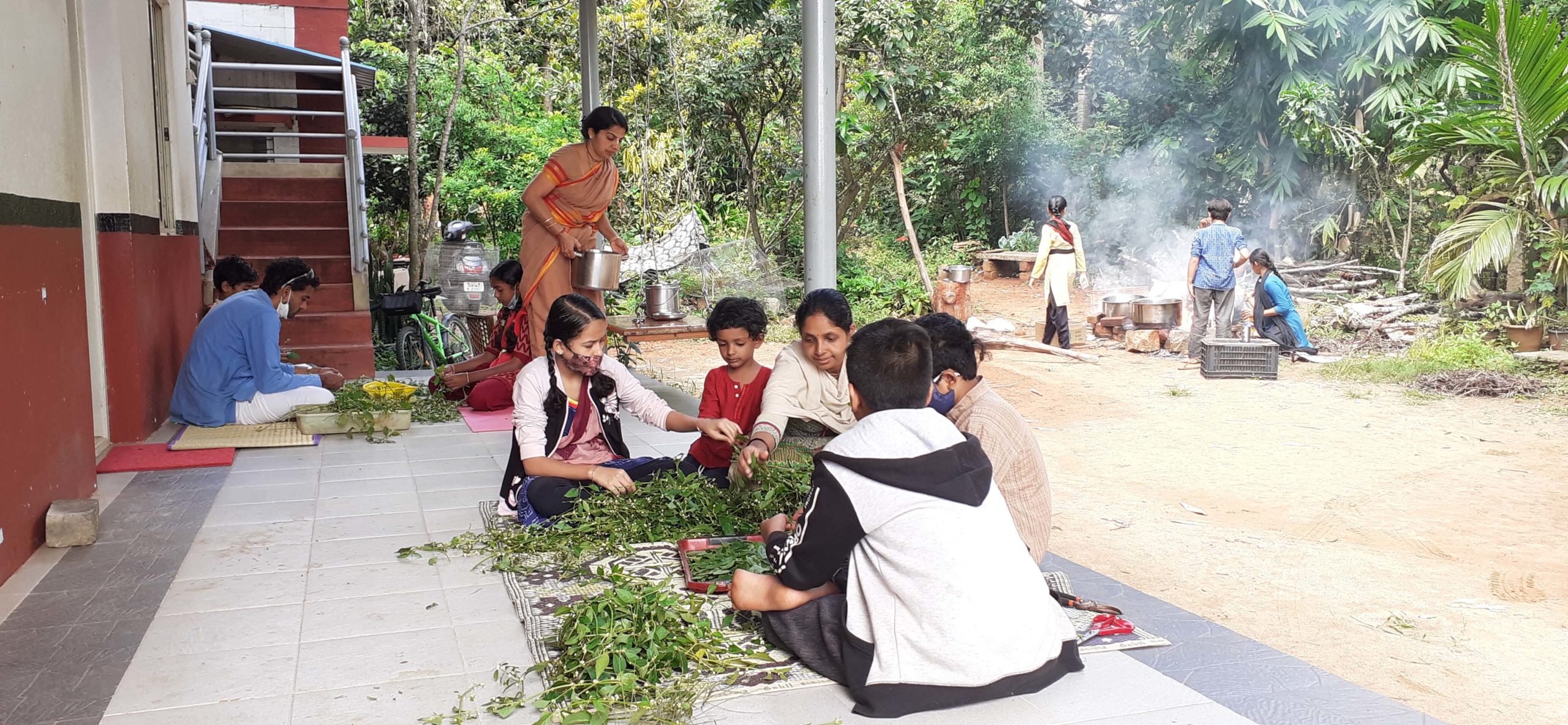
Parents take turns to coordinate lunch cooking at the school. This lunch is served to the students and teachers of the school.
Production of Soap, groceries, clothes, sweets, snacks, pickles etc. is a part of the community enterprise. Parents and teachers have the opportunity to give their seva for production and packaging.
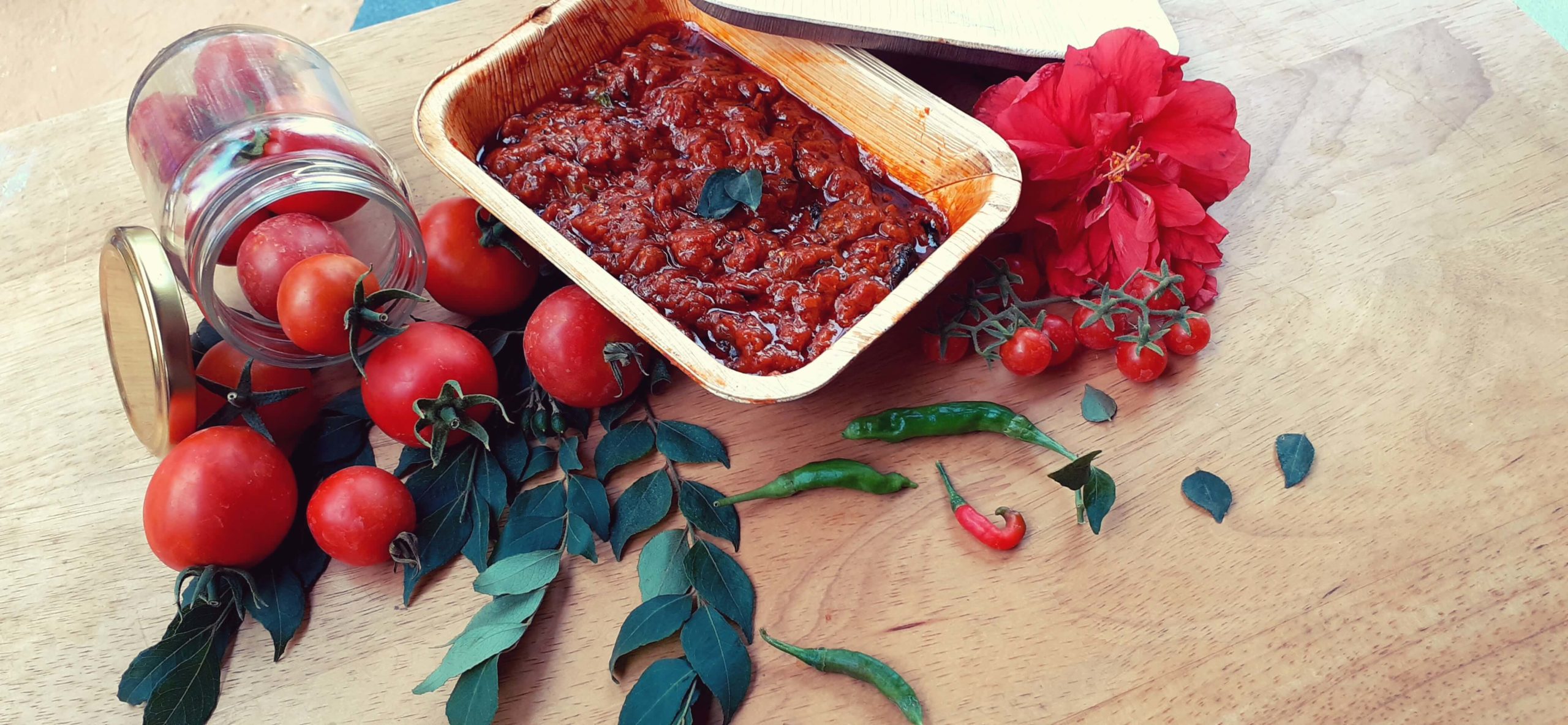
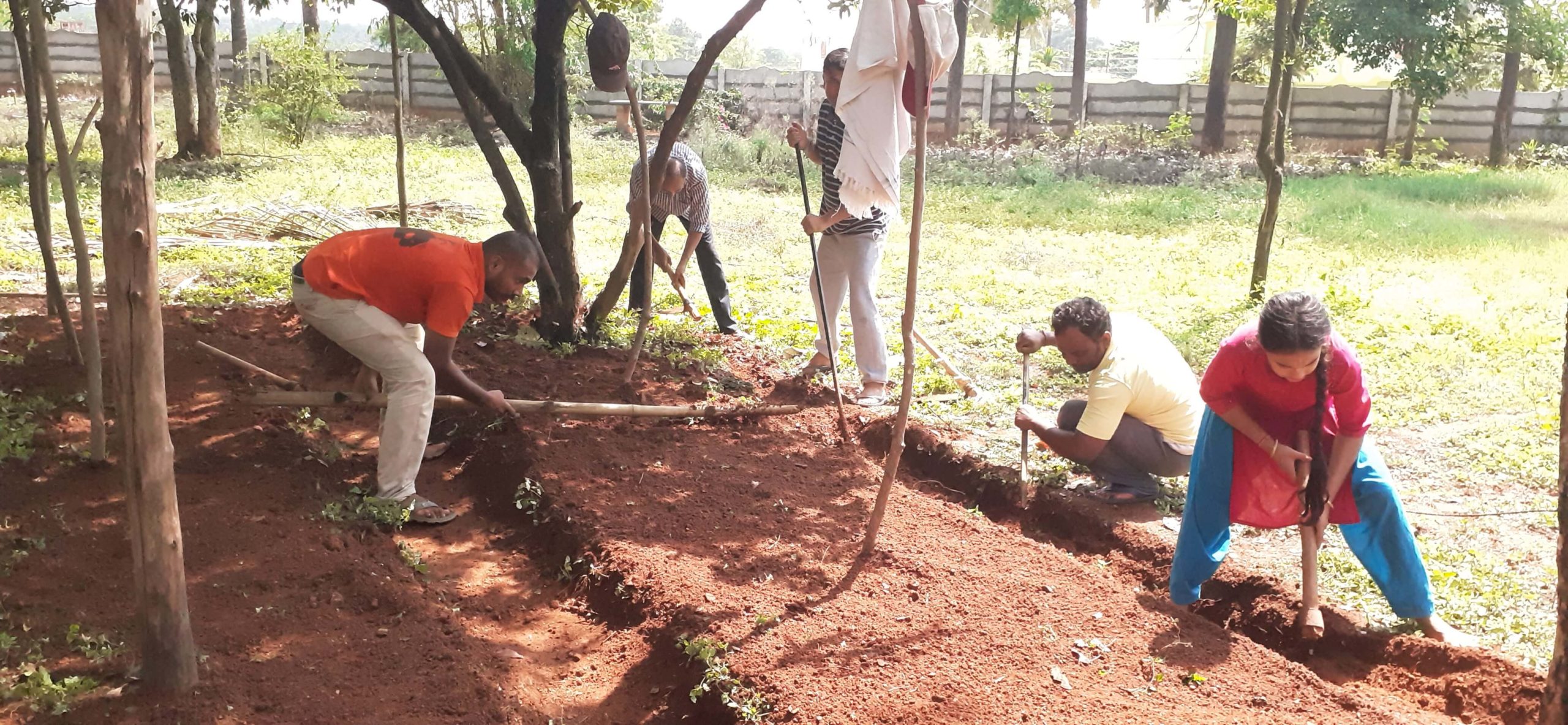
Teachers and students do krishi for an hour everyday. Parents and teachers have the opportunity to be a part of Krishi.
This activity happens once in a year during the month of December, when students 11 years and above come together to construct and learn how to make eco-friendly structures. Parents and teachers have the opportunity to be a part of it.
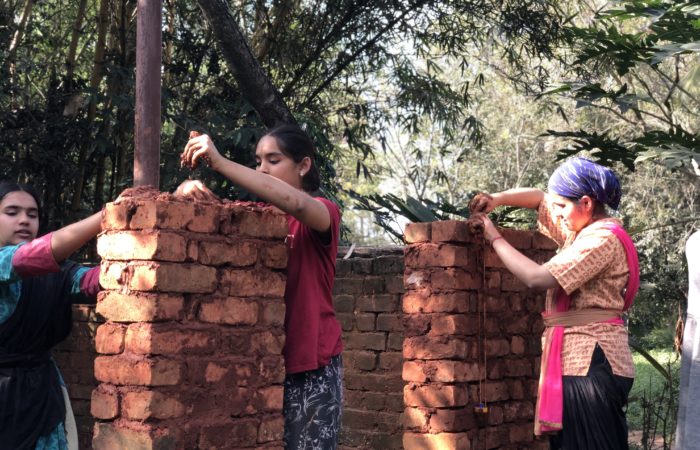
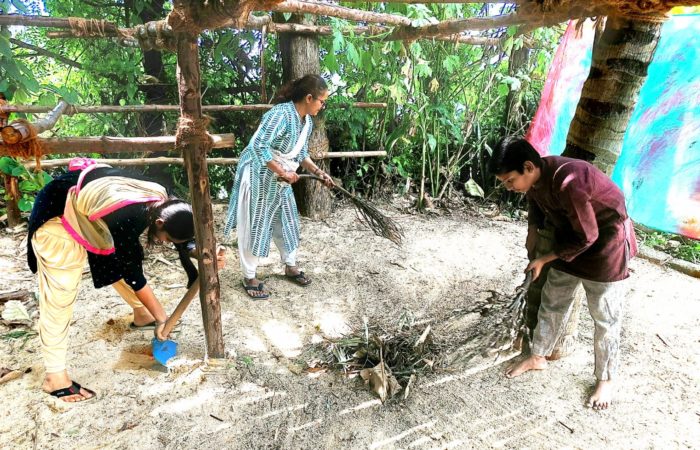
This is an activity to ensure cleanliness and upkeep of the VidyaKshetra premises. Teachers and students on a rotation basis spend an hour cleaning the campus daily. Some days in a year are kept aside for special cleaning of the campus. On these days parents have the opportunity to be a part of this activity.
Students learn everywhere and from everyone they come in contact with. Hence parent education becomes a very important dimension for the holistic learning of the students. At VidyaKshetra we have created various avenues for education of the parents and teachers which can help them in self-enrichment. Some of these avenues are:
New families becoming part of VidyaKshetra community attend a weekly online session for the first 2 years. This acts as a good platform for them to build their understanding about VidyaKshetra.
There are weekly reading and storytelling sessions organized, where parents and teachers participate voluntarily to understand the space of education, principles of Bhartiyata and itihaasa. These are online sessions.
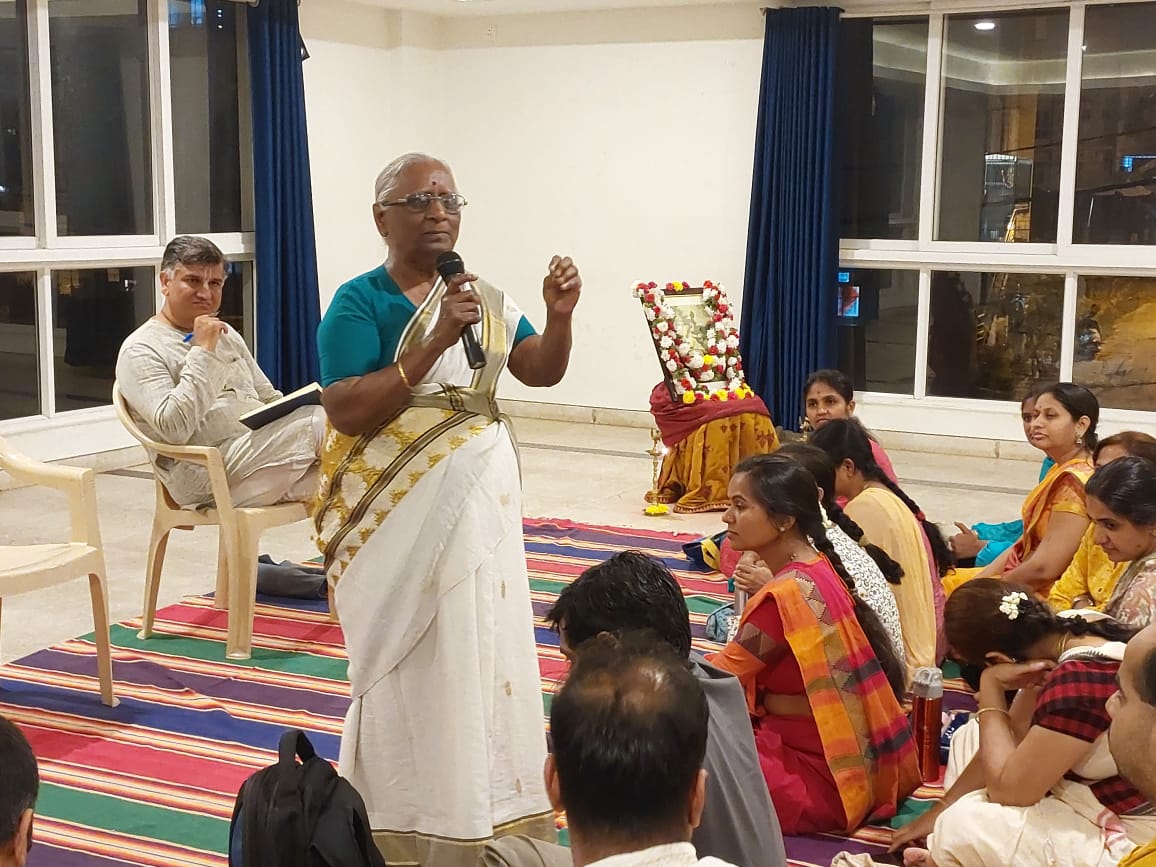
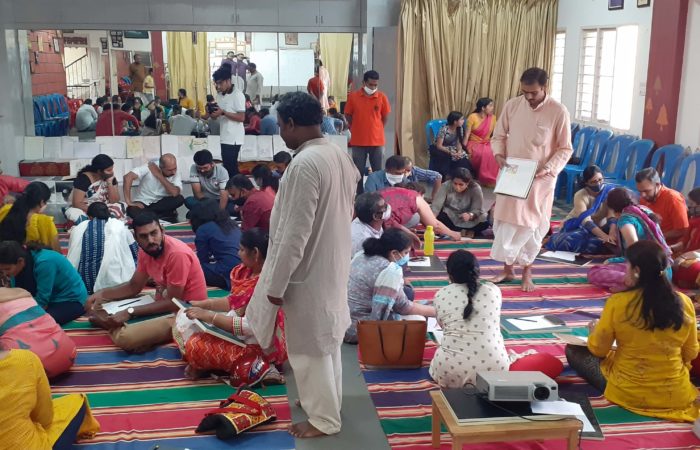
This is a whole day event where all the parents and teachers meet as a community. Typically, 4 such sessions happen in a year. These sessions include:
This is roughly a 3hr session where the kaksha acharya (class teacher) and all the parents of that class meet at the home of one parent. Typically 4 such sessions happen in a year hosted on rotation basis in the house of the parents. These sessions include:
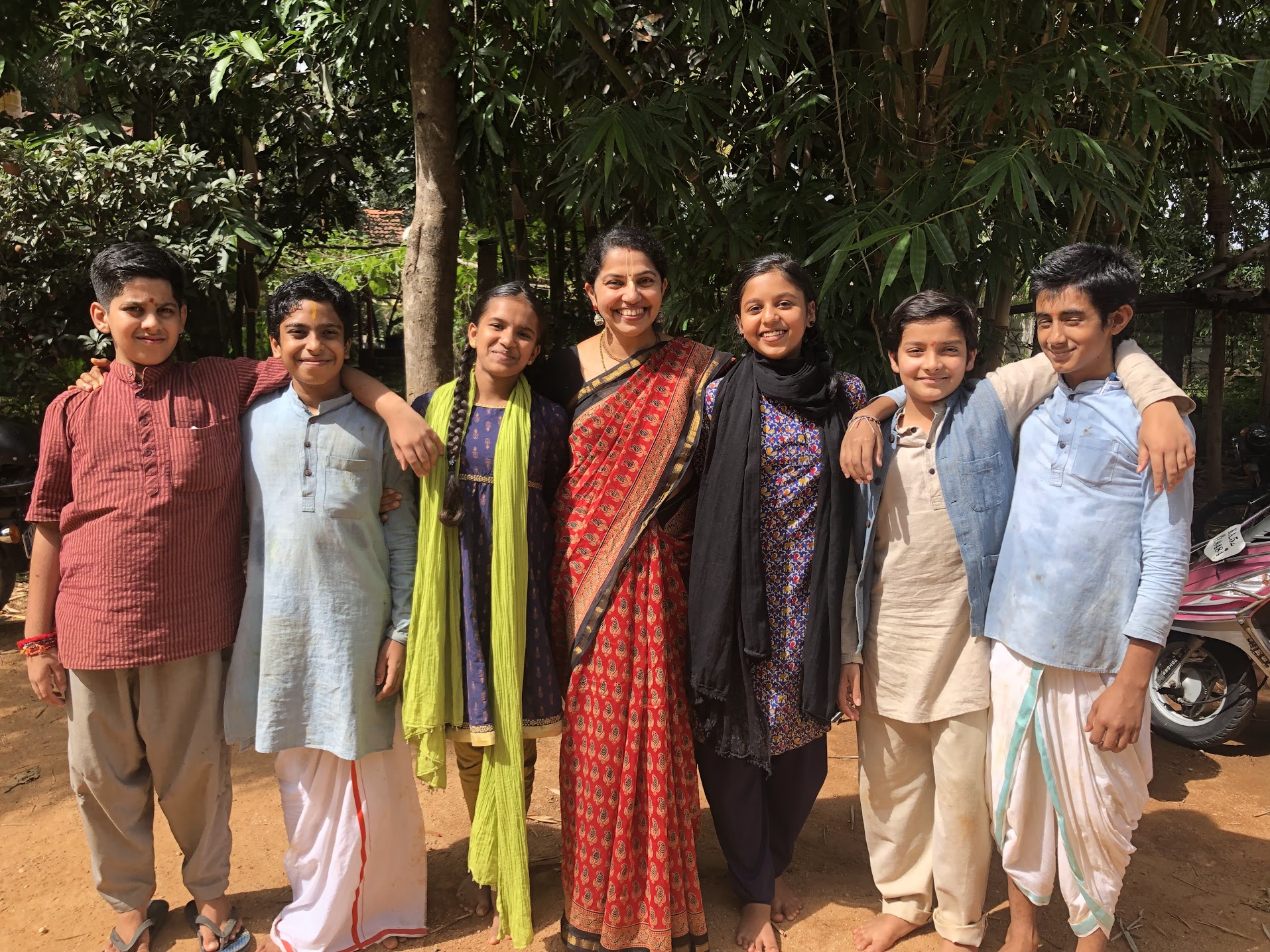
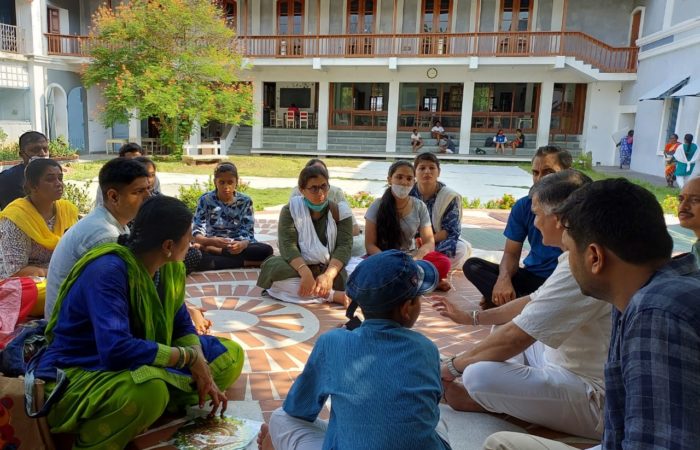
These are sessions with experts on Bharatiyata, education, kutumbh shiksha, arth vyavastha, samaj vyavastha and itihaasa etc, which are organized from time to time for the parents and teachers.
Festivals are a bedrock for any community to come together to talk, eat, enjoy, share culture, express their gratitude to the gods and to the environment and to provide a platform for students to share their learning. There are many festivals in a year which are celebrated by the teachers and students of VidyaKshetra. Two festivals are celebrated as a community, wherein all the students, parents and teachers participate. Even the friends and well wishers of VidyaKshetra community are invited to these two festivals. First of these festivals is Navaratri Utsav (1st day of Navaratri), when students of VidyaKshetra present their progress in Kala’s (classical music vocal, flute, Tabla, Bharatanatyam), followed by the teachers of VidyaKshetra performing. Second festival is Shankranti Habba where we do Gau (Cow) puja, rashi puja, make pongal, fly kite, display and sell handmade items prepared by teachers and parents of VidyaKshetra.
Another festival that deserves a mention here is Geeta Jayanti. On Geeta Jayanti we form smaller groups and go to the house of parents, their relatives and teachers houses to chant Bhagawad Gita. We also walk a kilometer and recite Bhagawad Gita in the city, while doing so we request for daan.
